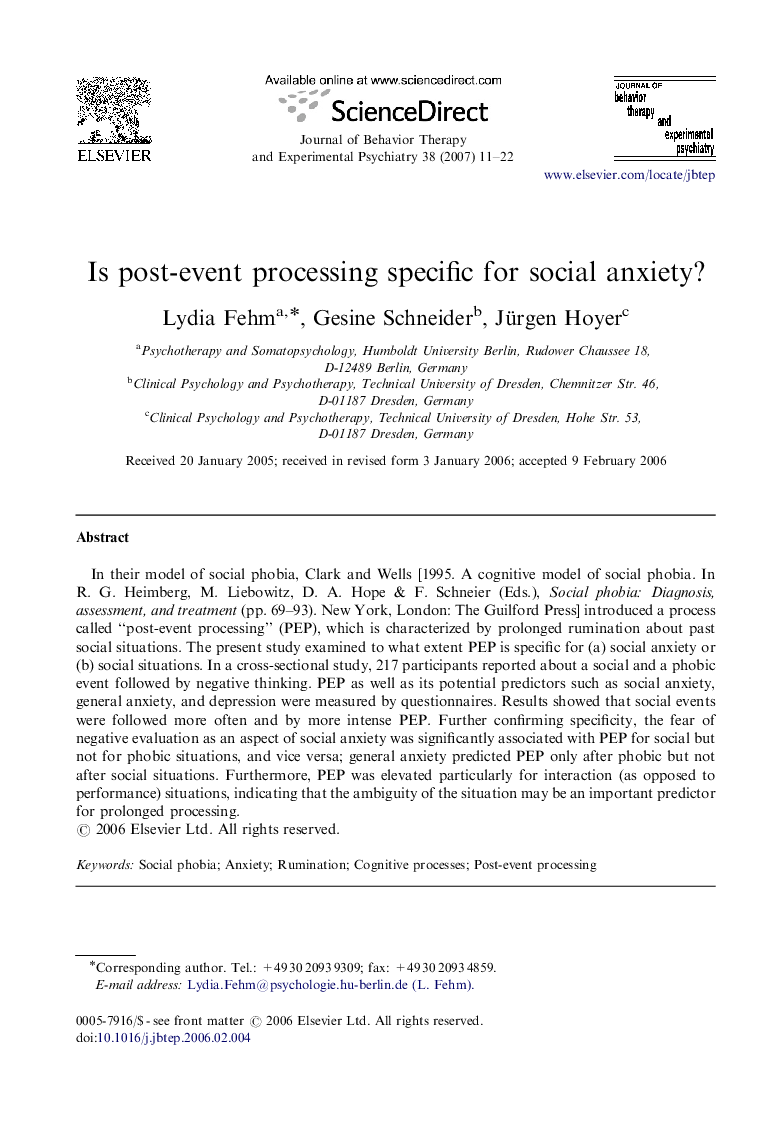| Article ID | Journal | Published Year | Pages | File Type |
|---|---|---|---|---|
| 910664 | Journal of Behavior Therapy and Experimental Psychiatry | 2007 | 12 Pages |
In their model of social phobia, Clark and Wells [1995. A cognitive model of social phobia. In R. G. Heimberg, M. Liebowitz, D. A. Hope & F. Schneier (Eds.), Social phobia: Diagnosis, assessment, and treatment (pp. 69–93). New York, London: The Guilford Press] introduced a process called “post-event processing” (PEP), which is characterized by prolonged rumination about past social situations. The present study examined to what extent PEP is specific for (a) social anxiety or (b) social situations. In a cross-sectional study, 217 participants reported about a social and a phobic event followed by negative thinking. PEP as well as its potential predictors such as social anxiety, general anxiety, and depression were measured by questionnaires. Results showed that social events were followed more often and by more intense PEP. Further confirming specificity, the fear of negative evaluation as an aspect of social anxiety was significantly associated with PEP for social but not for phobic situations, and vice versa; general anxiety predicted PEP only after phobic but not after social situations. Furthermore, PEP was elevated particularly for interaction (as opposed to performance) situations, indicating that the ambiguity of the situation may be an important predictor for prolonged processing.
